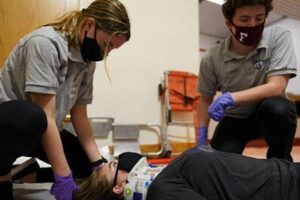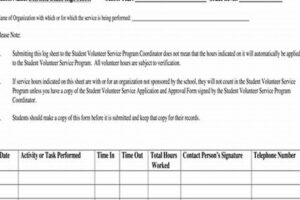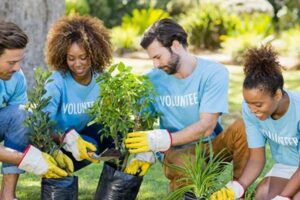Table of Contents
Our society’s future depends on the well-being and success of our young people. However, many youth face challenges that can lead them down a path of crime and incarceration. Volunteers for youth justice play a crucial role in helping these young people turn their lives around and reach their full potential.
Youth justice volunteers work with young people in a variety of settings, including detention centers, community-based programs, and schools. They provide a range of services, including mentoring, tutoring, counseling, and life skills training. These volunteers help youth address the underlying issues that led them to commit crimes, such as poverty, trauma, and mental health problems. They also help youth develop the skills and knowledge they need to make positive choices and lead productive lives.
By working with youth in the justice system, volunteers play a vital role in promoting public safety and reducing recidivism. They help young people break the cycle of crime and incarceration, and they help them become productive members of society.
Volunteers for Youth Justice
Volunteers for youth justice play a crucial role in helping young people in the justice system turn their lives around and reach their full potential.
- Mentorship: Volunteers can provide young people with guidance and support as they navigate the justice system and work to make positive changes in their lives.
- Education and Training: Volunteers can help youth catch up on school, develop job skills, and learn new ways to cope with the challenges they face.
- Community Engagement: Volunteers can help youth connect with their communities and find opportunities to give back, which can help them feel a sense of purpose and belonging.
- Restorative Justice: Volunteers can facilitate restorative justice practices, which aim to repair harm and build relationships between youth and the people they have harmed.
- Advocacy: Volunteers can advocate for just policies and practices that support youth in the justice system and help them succeed.
By working with youth in the justice system, volunteers can make a real difference in their lives. They can help youth to overcome the challenges they face, make positive changes, and reach their full potential.
Mentorship: Volunteers can provide young people with guidance and support as they navigate the justice system and work to make positive changes in their lives.
Mentorship is a key component of youth justice volunteer programs. Volunteers can provide young people with the guidance and support they need to navigate the complex legal system, access the services they need, and make positive changes in their lives.
Mentors can help youth develop important life skills, such as problem-solving, decision-making, and communication skills. They can also help youth build healthy relationships, set goals, and develop a positive self-image.
In addition, mentors can provide emotional support and encouragement to youth who are struggling. They can help youth to cope with the challenges they face, such as poverty, trauma, and mental health problems.
Mentorship can make a real difference in the lives of young people in the justice system. Mentors can help youth to stay out of trouble, succeed in school, and find employment. They can also help youth to develop the skills and knowledge they need to live productive and fulfilling lives.
If you are interested in becoming a youth justice mentor, there are many organizations that can provide you with training and support. You can also find information about youth justice mentoring programs online.
Education and Training: Volunteers can help youth catch up on school, develop job skills, and learn new ways to cope with the challenges they face.
Education and training are essential for helping youth in the justice system turn their lives around. Volunteers can play a vital role in providing youth with the educational and vocational skills they need to succeed in school, find employment, and live productive lives.
- Catching Up on School: Many youth in the justice system have fallen behind in school due to factors such as poverty, trauma, and family problems. Volunteers can help youth catch up on their schoolwork by providing tutoring and other academic support.
- Developing Job Skills: Many youth in the justice system lack the job skills they need to find employment. Volunteers can help youth develop job skills by providing vocational training, resume writing assistance, and interview preparation.
- Learning Coping Skills: Many youth in the justice system have experienced trauma and other challenges that can make it difficult for them to cope with stress and difficult emotions. Volunteers can help youth learn coping skills, such as anger management, conflict resolution, and problem-solving skills.
- Developing Life Skills: Many youth in the justice system lack basic life skills, such as cooking, budgeting, and parenting skills. Volunteers can help youth develop these skills by providing life skills training and workshops.
By providing education and training to youth in the justice system, volunteers can help them to overcome the challenges they face and build a brighter future for themselves.
Community Engagement: Volunteers can help youth connect with their communities and find opportunities to give back, which can help them feel a sense of purpose and belonging.
Community engagement is an important part of youth justice volunteer programs. Volunteers can help youth connect with their communities and find opportunities to give back, which can help them feel a sense of purpose and belonging.
When youth are involved in their communities, they are more likely to develop positive relationships with adults and peers. They are also more likely to develop a sense of civic responsibility and to make positive contributions to their communities.
Volunteers can help youth connect with their communities in a variety of ways. They can help youth find volunteer opportunities, join clubs and sports teams, and participate in community events. Volunteers can also help youth develop leadership skills and learn how to advocate for themselves and their communities.
In addition, volunteers can help youth find opportunities to give back to their communities. This could involve volunteering at a local soup kitchen, tutoring other youth, or cleaning up a local park. When youth give back to their communities, they learn the value of helping others and they develop a sense of pride in their communities.
By helping youth connect with their communities and find opportunities to give back, volunteers can help them to develop a sense of purpose and belonging. This can help youth to stay out of trouble, succeed in school, and find employment. It can also help youth to develop the skills and knowledge they need to live productive and fulfilling lives.
Restorative Justice: Volunteers can facilitate restorative justice practices, which aim to repair harm and build relationships between youth and the people they have harmed.
Restorative justice is a philosophy and set of practices that focus on repairing harm and building relationships between people who have been harmed by crime. Restorative justice practices can be used in a variety of settings, including youth justice.
- Victim-Offender Mediation: Victim-offender mediation is a process in which a trained mediator facilitates a meeting between a young person who has committed a crime and the person or people who were harmed by the crime. The goal of victim-offender mediation is to allow the young person to take responsibility for their actions, apologize for the harm they have caused, and make amends to the victim. The victim has the opportunity to express the impact of the crime on their life and to receive an apology from the young person.
- Family Group Conferencing: Family group conferencing is a process in which the young person, their family, the victim, and other affected parties come together to discuss the crime and its impact. The goal of family group conferencing is to develop a plan that will hold the young person accountable for their actions and help them to make amends for the harm they have caused.
- Peacemaking Circles: Peacemaking circles are a process in which the young person, the victim, and other affected parties come together in a circle to talk about the crime and its impact. The goal of peacemaking circles is to promote healing and reconciliation between the young person and the victim.
- Community Service: Community service is a type of restorative justice practice that allows the young person to make amends for their actions by performing unpaid work that benefits the community.
Restorative justice practices can be an effective way to address youth crime. They can help to repair harm, build relationships, and reduce recidivism. Volunteers can play a vital role in facilitating restorative justice practices by providing support to young people, victims, and families.
Advocacy: Volunteers can advocate for just policies and practices that support youth in the justice system and help them succeed.
Advocacy is an important part of youth justice volunteer work. Volunteers can advocate for just policies and practices that support youth in the justice system and help them succeed.
One way that volunteers can advocate for youth is by educating the public about the challenges that youth in the justice system face. Volunteers can also advocate for policies that support youth, such as increased funding for youth programs and services, and policies that reduce the number of youth who are incarcerated.
Volunteers can also advocate for just practices within the justice system. For example, volunteers can advocate for policies that ensure that youth are treated fairly and respectfully by law enforcement and court personnel. Volunteers can also advocate for policies that provide youth with access to the services and support they need to succeed, such as education, job training, and mental health treatment.
In addition, volunteers can advocate for policies that address the root causes of youth crime, such as poverty, inequality, and trauma. By advocating for just policies and practices, volunteers can help to create a more just and equitable justice system for youth.
If you are interested in advocating for youth justice, there are many ways to get involved. You can contact your local youth justice agency or organization to learn about volunteer opportunities. You can also contact your elected officials to let them know that you support policies and practices that help youth succeed.
FAQ
If you are interested in volunteering for youth justice, you may have some questions. Here are some frequently asked questions and answers:
Question 1: What kind of volunteer opportunities are available?
Answer 1: There are a variety of volunteer opportunities available in youth justice, depending on your interests and skills. You can work with youth in detention centers, community-based programs, or schools. You can provide tutoring, mentoring, counseling, or life skills training. You can also advocate for policies that support youth in the justice system.
Question 2: What qualifications do I need to be a youth justice volunteer?
Answer 2: The qualifications for youth justice volunteers vary depending on the specific role. However, most volunteer positions require a high school diploma or equivalent. Some positions may also require a background check. You should also be patient, compassionate, and have a commitment to helping youth.
Question 3: How much time do I need to commit to volunteer?
Answer 3: The time commitment for youth justice volunteers varies depending on the role. Some volunteer positions may require only a few hours per week, while others may require a more significant time commitment. You should discuss the time commitment with the volunteer coordinator before committing to a volunteer position.
Question 4: What kind of training will I receive?
Answer 4: Youth justice volunteer programs typically provide training to volunteers. The training may cover topics such as youth development, trauma-informed care, and conflict resolution. The training will help you to be effective in your role as a volunteer.
Question 5: How can I find a volunteer opportunity?
Answer 5: You can find youth justice volunteer opportunities by contacting your local youth justice agency or organization. You can also find volunteer opportunities online. There are a number of websites that list volunteer opportunities, such as VolunteerMatch and Idealist.
Question 6: What are the benefits of volunteering for youth justice?
Answer 6: There are many benefits to volunteering for youth justice. You can make a real difference in the lives of young people. You can also learn new skills, meet new people, and gain valuable experience.
If you are interested in volunteering for youth justice, I encourage you to contact your local youth justice agency or organization to learn more about volunteer opportunities.
Transition: Volunteering for youth justice is a rewarding experience that can make a real difference in the lives of young people. If you are considering volunteering, I encourage you to learn more about the opportunities available in your community.
Tips
Here are a few tips for youth justice volunteers:
Tip 1: Be patient and compassionate. Working with youth in the justice system can be challenging. Youth may be struggling with a variety of issues, such as trauma, poverty, and mental health problems. It is important to be patient and compassionate with youth, and to understand that they may not always make the best choices.
Tip 2: Build relationships with youth. The most effective youth justice volunteers are those who are able to build relationships with youth. Take the time to get to know the youth you work with, and to understand their interests and challenges. Building relationships with youth will help you to be more effective in your role as a volunteer.
Tip 3: Be a positive role model. Youth in the justice system often come from difficult backgrounds. They may not have had many positive role models in their lives. As a youth justice volunteer, you can be a positive role model for youth. Show them that you care about them, and that you believe in their potential.
Tip 4: Advocate for youth. Youth in the justice system often face a number of challenges. They may be struggling with school, housing, or employment. As a youth justice volunteer, you can advocate for youth and help them to access the services and support they need.
Closing: Volunteering for youth justice is a rewarding experience that can make a real difference in the lives of young people. By following these tips, you can be an effective youth justice volunteer and help to make a difference in the lives of youth.
Transition: Volunteering for youth justice is a great way to give back to your community and make a difference in the lives of young people. If you are interested in volunteering, I encourage you to learn more about the opportunities available in your community.
Conclusion
Youth justice volunteers play a vital role in helping young people in the justice system turn their lives around and reach their full potential. By providing mentorship, education and training, community engagement, restorative justice, and advocacy, youth justice volunteers help youth to overcome the challenges they face and build brighter futures for themselves.
If you are interested in becoming a youth justice volunteer, there are many ways to get involved. You can contact your local youth justice agency or organization to learn more about volunteer opportunities. You can also find volunteer opportunities online. There are a number of websites that list volunteer opportunities, such as VolunteerMatch and Idealist.
Volunteering for youth justice is a rewarding experience that can make a real difference in the lives of young people. If you are looking for a way to give back to your community and make a difference in the lives of young people, I encourage you to consider becoming a youth justice volunteer.






